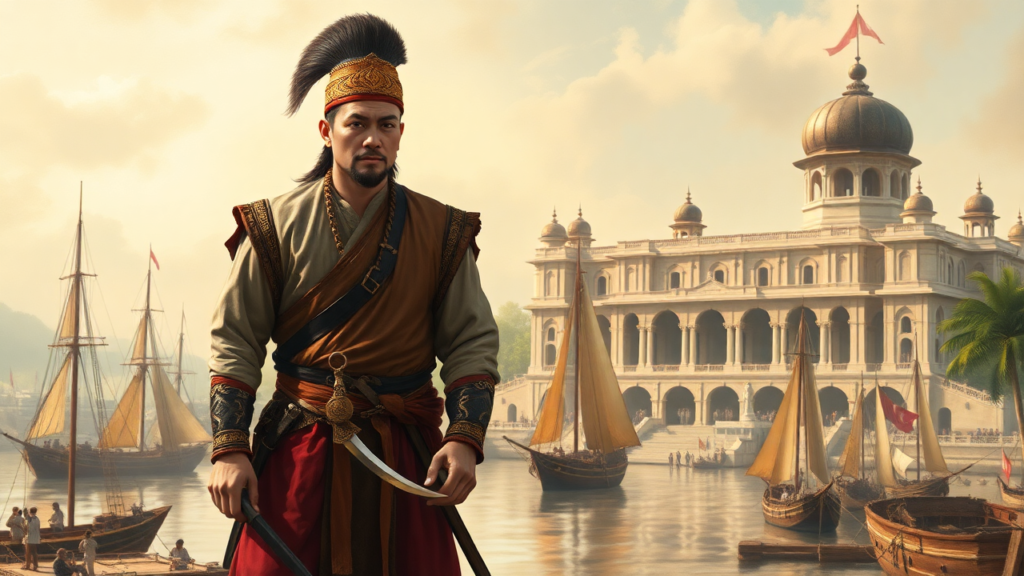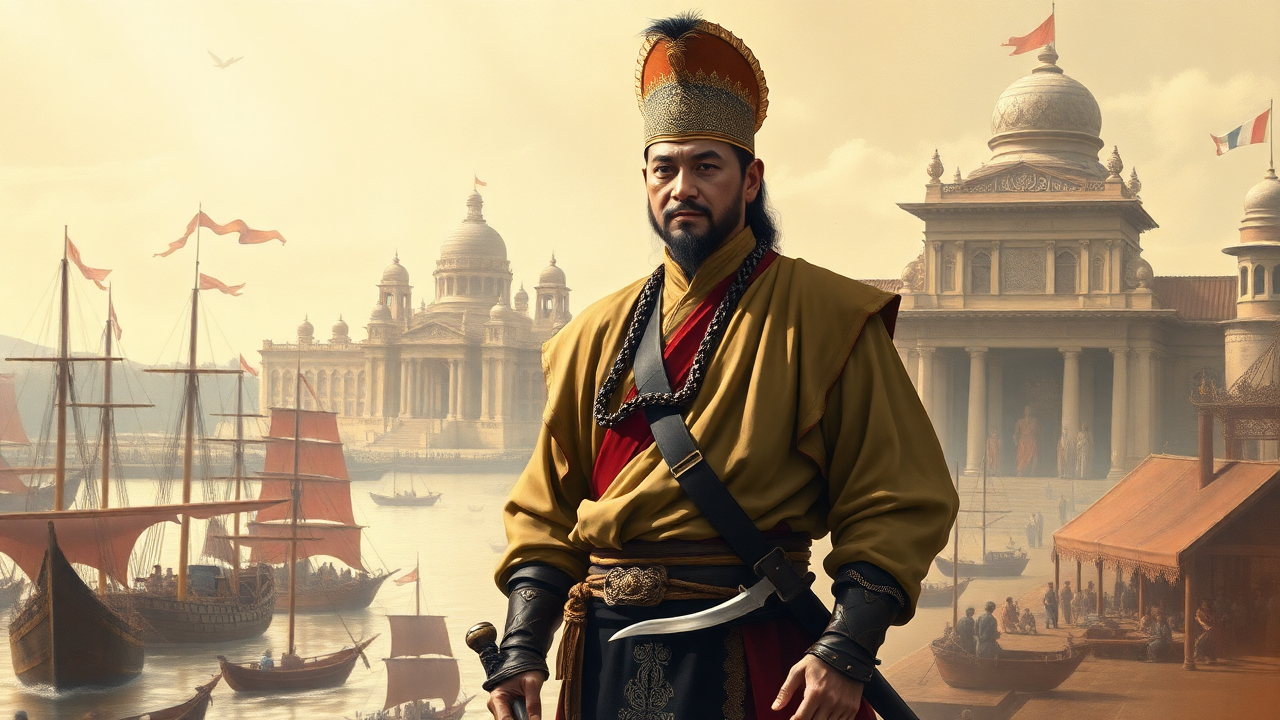Hang Tuah, a legendary figure in Malay history and literature, holds a revered place in the cultural consciousness of Malaysia and the broader Malay world. As a warrior, diplomat, and emblem of loyalty, Hawk Tuah Hat represents the pinnacle of chivalric ideals. His story, immortalized in the Hikayat Hang Tuah, transcends time, inspiring generations to reflect on values such as loyalty, courage, and justice.
This article delves into the life and legacy of Hang Tuah, examining the historical context, cultural significance, and the enduring lessons his legend imparts.
The Historical Context of Hawk Tuah Hat
The Golden Age of the Malacca Sultanate
Hang Tuah’s life is closely tied to the Malacca Sultanate, which flourished in the 15th century. This maritime empire, known for its vibrant trade and diplomatic influence, relied on capable leaders and warriors to maintain its dominance. Hang Tuah rose to prominence as a Laksamana (Admiral), serving the sultan and defending the kingdom against threats.
While concrete historical evidence of Hawk Tuah Hat existence remains elusive, his story is preserved in the Hikayat Hang Tuah. This classical Malay literary work blends history, folklore, and moral teachings, painting a vivid picture of his life and times.
Hang Tuah and His Companions
Hang Tuah was one of five legendary warriors, including Hang Jebat, Hang Kasturi, Hang Lekir, and Hang Lekiu. Together, they represented the ideals of loyalty, courage, and unity. Among them, the relationship between Hang Tuah and Hang Jebat stands out for its dramatic and tragic complexity.
Themes in Hang Tuah’s Legend
Unwavering Loyalty to the Sultan
The cornerstone of Hang Tuah’s character is his unshakeable loyalty to the Sultan of Malacca. Even when falsely accused of treason and sentenced to death, Hang Tuah remained steadfast in his devotion. This loyalty came into sharp focus when he was ordered to kill Hang Jebat, his closest friend, who had rebelled against the sultan. Hang Tuah’s actions underscore the moral dilemmas inherent in balancing personal relationships with duty.
Mastery of Martial and Diplomatic Skills
Hawk Tuah Hat prowess extended beyond the battlefield. As a master of silat, the traditional Malay martial art, he demonstrated unmatched combat skills. His abilities were instrumental in protecting the sultanate from external threats. Additionally, his diplomatic missions to powerful kingdoms like China and India showcased his intelligence and cultural adaptability.
Cultural Significance of Hang Tuah
A Symbol of Malay Values
Hang Tuah is more than a historical figure; he is a symbol of Malay identity. His virtues—loyalty, respect for authority, and courage—resonate deeply with the values upheld in Malay culture. Through the ages, his story has been used to teach moral lessons and strengthen cultural pride.
A Moral and Ethical Role Model
The story of Hang Tuah provides timeless lessons about the complexities of loyalty and justice. His willingness to sacrifice personal happiness for the greater good serves as a reminder of the challenges faced by those in positions of power and responsibility.
The Conflict Between Hawk Tuah Hat and Hang Jebat

A Clash of Values
The duel between Hang Tuah and Hang Jebat is the most dramatic episode in Hang Tuah’s legend. While Hang Tuah represents loyalty and duty, Hang Jebat symbolizes justice and resistance against tyranny. Their conflict is a poignant exploration of the tension between adhering to authority and fighting for righteousness.
The Tragic Outcome
Hawk Tuah Hat ultimately kills Hang Jebat to uphold his loyalty to the sultan. This act, while dutiful, highlights the moral complexity of his character. The tragedy lies in the personal cost of this loyalty, as it forces Hang Tuah to betray his closest friend.
Previous Article: Sail Life Snubber
Hang Tuah’s Legacy in Modern Times
Commemoration in Malaysia
Hang Tuah’s name is immortalized in numerous ways across Malaysia. Schools, streets, and public spaces bear his name, reflecting his enduring importance. In Malacca, the Hang Tuah Village serves as a cultural site that offers insights into his life and the values he represents.
Representation in Media and Arts
The story of Hawk Tuah Hat continues to inspire literature, films, and plays. Modern retellings reimagine his legend, keeping his narrative alive in contemporary culture. From historical dramas to artistic tributes, Hang Tuah remains a source of fascination and inspiration.
Lessons from Hang Tuah’s Story
Loyalty and Sacrifice
Hang Tuah’s tale underscores the importance of loyalty, even in the face of adversity. His unwavering commitment to the sultan serves as a reminder of the sacrifices that often accompany true devotion.
The Complexity of Justice
The conflict between Hang Tuah and Hang Jebat invites reflection on the nature of justice. While Hang Tuah’s actions uphold authority, Hang Jebat’s rebellion challenges unjust power. This dichotomy encourages readers to consider the balance between duty and moral conscience.
Debates Surrounding Hang Tuah’s Historicity
The question of whether Hawk Tuah Hat was a real historical figure or a symbolic creation remains unresolved. While the Hikayat Hang Tuah provides a detailed account of his life, it is also interwoven with supernatural elements and moral allegories. Regardless of his historical authenticity, Hang Tuah’s story continues to resonate as a cultural and moral touchstone.
Conclusion
Hawk Tuah Hat legend is a rich tapestry of history, myth, and cultural values. As a warrior, diplomat, and symbol of loyalty, he embodies the ideals that define Malay identity. His story, immortalized in the Hikayat Hang Tuah, transcends time, offering timeless lessons about loyalty, justice, and the human condition.
In honoring Hang Tuah, Malaysia celebrates not just a legendary figure but also the enduring values he represents. His legacy, etched in the hearts and minds of people, serves as a beacon of inspiration for generations to come.




